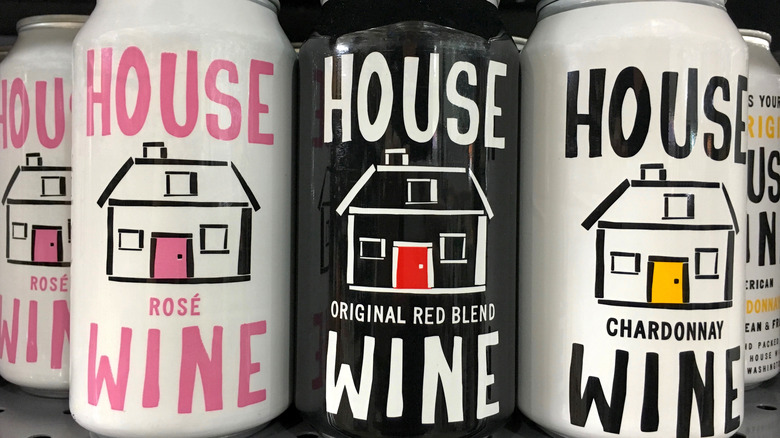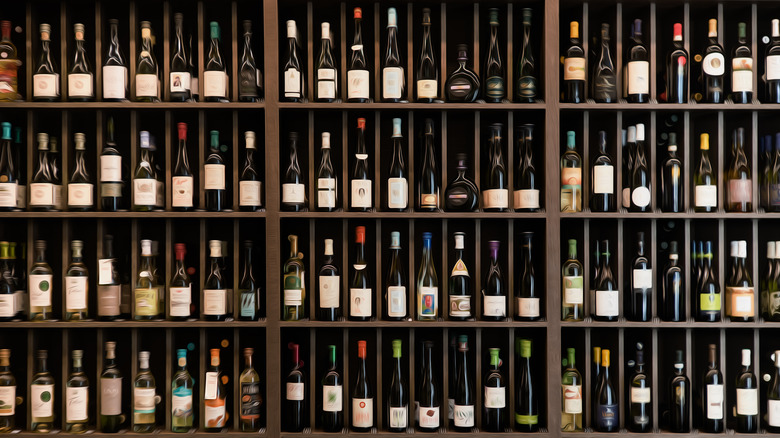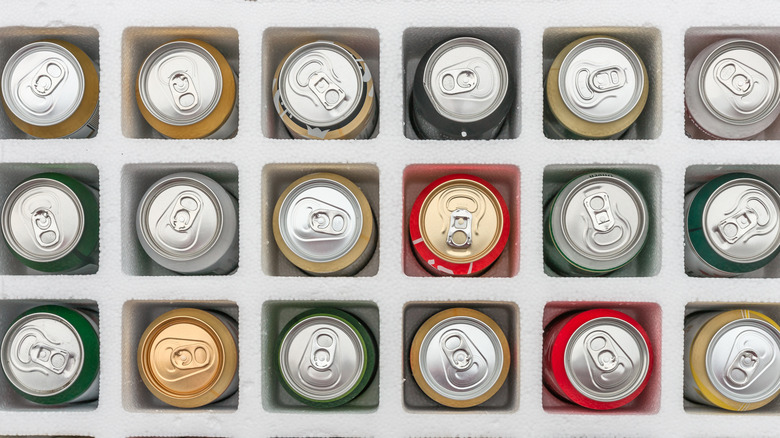The One Reason Canned Wine May Be Better Than Bottled Wine
For serious wine lovers, purchasing that perfect bottle and storing it until the moment you are able to pop the cork can be quite ritualistic. And if you are this type of connoisseur, you might not be on board with the ever-increasing popularity of canned wine. But there's good reason to try it. Sure, it doesn't have the same look and feel as an elegant bottle of vino, but there's nothing sophisticated about the amount of waste and carbon emissions that come from a glass bottle that is probably only used once.
According to Green Matters, the shift towards sustainability in winemaking and viticultural practices has been growing over the past few years. Even Jancis Robinson, voted the world's most influential wine critic in 2018, asserts that wine packaging is incredibly significant, writing in the Financial Times that glass bottles and their transport are by far the greatest offenders of high carbon-footprints. Robinson further remarks that wine drinkers need to drop any airs of snobbery and realize that canned wine is considerably better for the environment.
What's the issue with how wine bottles are transported?
Besides the weight and emissions from road, rail, and sea transport, wine bottles are particularly inefficient at making use of space, Robinson notes in her piece for the Financial Times. (Think of all the empty space between the thin bottlenecks in a case of wine compared with a carton packed with cylindrical cans with little wiggle room.) While the difference in one case might not seem that important, consider that each case affects what will fit onto one pallet, and in turn how much wine will be shipped in each container (via Financial Times). To this point, Refinery29 explains that canned wine is even more suitable for budget-conscious drinkers, since the cost of shipping heavy glass bottles often matches the price of the wine itself.
Although VinePair notes that both cans and glass can be endlessly recycled, in reality, cans are generally made from a higher proportion of recycled materials compared to bottles. This may in part be explained by the results found by The Aluminum Association, which indicate that consumers tend to be more diligent about recycling cans versus bottles. Not that we ever needed a reason to drink more wine — but at least drinking it in excess in cans can actually be good for the environment!
Cans could be the future of wine
While increasing the production of canned wine can help reduce some carbon emissions related to glass bottles, Taste of Home notes that cans aren't meant for all wine, since the shelf life is capped at around 18 months. Therefore, canned wine isn't really meant for those decades-old varietals stored in dusty bottles.
Even so, Beverage Daily shared the results of a blind taste test that found that there was little difference between preferences to bottled or canned versions of the same wine. Nevertheless, the outlet notes that half of the participants had never tried canned wine before, which demonstrates that marketing efforts are still necessary to make the shift from cans as a trend to a sustainable alternative. Regardless of the consumer, for a fuss-free option to toss into your picnic basket, cans are a good bet all around.


